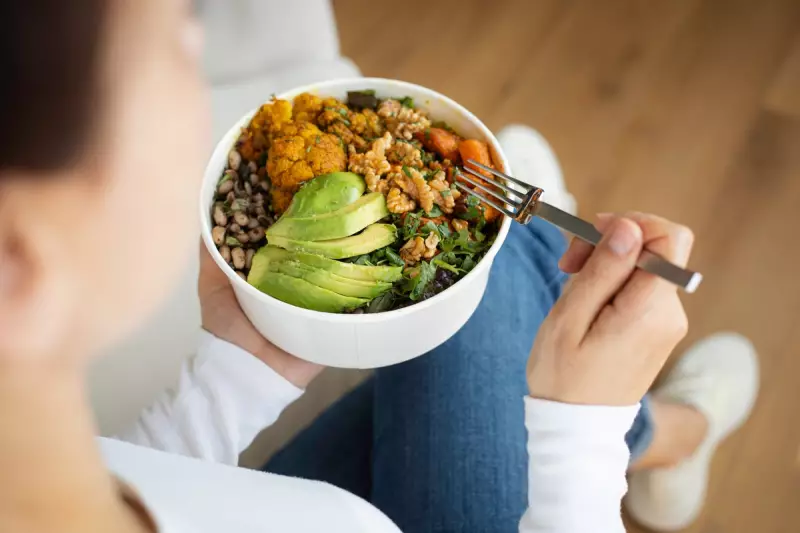
Celebrity chefs Jamie Oliver, Hugh Fearnley-Whittingstall and Tom Kerridge are championing a major new health campaign aiming to double the UK's consumption of beans, legumes and pulses by 2028. The 'Bang In Some Beans' initiative seeks to address a surprising nutritional gap in the British diet.
Despite the enduring popularity of beans on toast, recent data from the Food Foundation reveals a concerning trend: two-thirds of the UK population eat less than one portion of beans per week. This new campaign, backed by culinary heavyweights, argues that increasing our intake of these affordable foods could be a powerful solution to both rising food costs and the nation's health crises.
The Nutritional Powerhouse on Your Plate
Beans represent one of the most cost-effective and nutrient-dense foods available in British supermarkets. As food prices continue to climb and poor nutrition contributes to a growing burden of disease, these humble pantry staples offer a dual benefit for household budgets and public health.
One of their most significant potential impacts is on the UK's fibre gap. Current guidelines recommend 30g of fibre per day, yet most Britons fail to meet this target. Beans provide one of the simplest and most affordable ways to bridge this nutritional shortfall.
Four Key Health Benefits of Regular Bean Consumption
Weight Management Support
Packed with protein, fibre, and essential micronutrients like iron, magnesium and potassium, beans offer a powerful nutritional profile. Research consistently shows that people who consume higher amounts of beans tend to have lower body weight, smaller waist measurements and reduced blood pressure. These factors are all associated with decreased risk of chronic conditions including obesity, diabetes and heart disease.
The high fibre and protein content in beans promotes satiety – that feeling of fullness after eating – which plays a crucial role in appetite control and long-term weight management strategies.
Heart Health Champion
An extensive body of research connects bean consumption with cardiovascular benefits. Diets rich in beans can significantly lower LDL (often called 'bad') cholesterol, improve blood pressure readings and reduce inflammation throughout the body.
The mechanism is straightforward: the fibre in beans binds to cholesterol in the digestive system, allowing it to be excreted rather than absorbed. Furthermore, their potassium and magnesium content supports healthy vascular function, making beans a cornerstone food for those managing heart conditions or high cholesterol.
Blood Sugar Regulation
Beans possess a low glycaemic index, meaning they release energy gradually and help prevent sharp spikes in blood sugar levels. Their combination of fibre and protein slows carbohydrate absorption, promoting better blood sugar control – a critical factor for preventing and managing type 2 diabetes.
Clinical evidence supports these benefits. One randomised controlled trial involving over 100 people with type 2 diabetes found that participants who consumed at least one cup of legumes daily for three months showed improved blood sugar control alongside significant reductions in body weight, waist circumference, cholesterol levels and blood pressure.
Gut Health Enhancement
Beans provide both soluble and insoluble fibre, which act as prebiotics to feed beneficial gut bacteria. The fermentation of these fibres in the colon produces short-chain fatty acids that have anti-inflammatory properties and support colon health. Regular consumption contributes to improved digestion and better bowel regularity.
Practical Tips for Boosting Your Bean Intake
Incorporating more beans into your diet doesn't require dramatic changes. Here are some simple strategies recommended by nutrition experts.
Start gradually with small portions – about half a cup of cooked beans – a few times weekly, increasing as your digestive system adjusts to minimise potential bloating or flatulence.
Experiment with different varieties like chickpeas, kidney beans, lentils, black beans and cannellini beans. This diversity not only broadens your nutrient intake but keeps meals interesting.
Add beans to familiar dishes by stirring them into soups, stews, curries, salads or pasta sauces. Even a small handful can make a meaningful nutritional difference.
Choose canned beans for convenience – they're just as nutritious as dried varieties. Simply rinse them well to reduce sodium content. If using dried beans, ensure proper overnight soaking and thorough cooking to neutralise anti-nutrients like phytates and improve digestibility.
From a nutritional standpoint, chickpeas and lentils are excellent choices due to their high fibre and protein content. Black beans contain antioxidants linked to reduced risk of conditions like cancer, diabetes and Alzheimer's disease. Ultimately, the best beans are those you'll actually eat regularly as part of your diet.
Certain groups should exercise caution when increasing bean consumption. People with IBS, IBD or digestive sensitivities may experience bloating or discomfort and should introduce beans gradually. Those with kidney disease should consult their doctor due to beans' high potassium content. Individuals with low iron or zinc levels should ensure proper preparation methods to minimise the impact of anti-nutrients on mineral absorption.
As food expert Raysa El Zein from the University of Westminster emphasises, beans represent a nutritional powerhouse – high in fibre, protein and key micronutrients while being both affordable and environmentally friendly. With major culinary figures now championing their benefits, the humble bean may be poised for a well-deserved renaissance on British plates.






